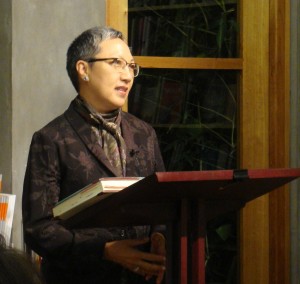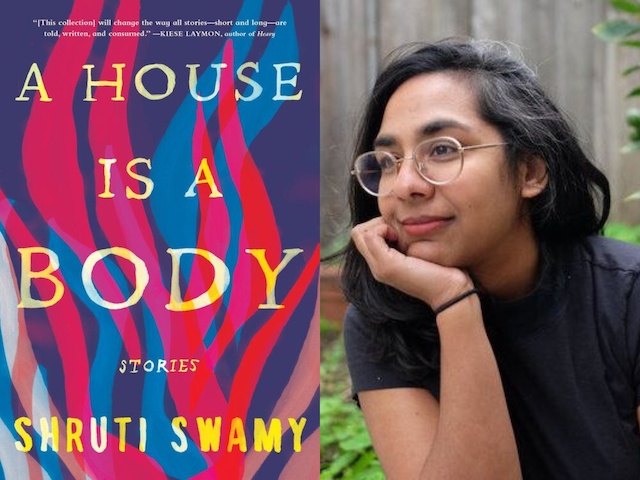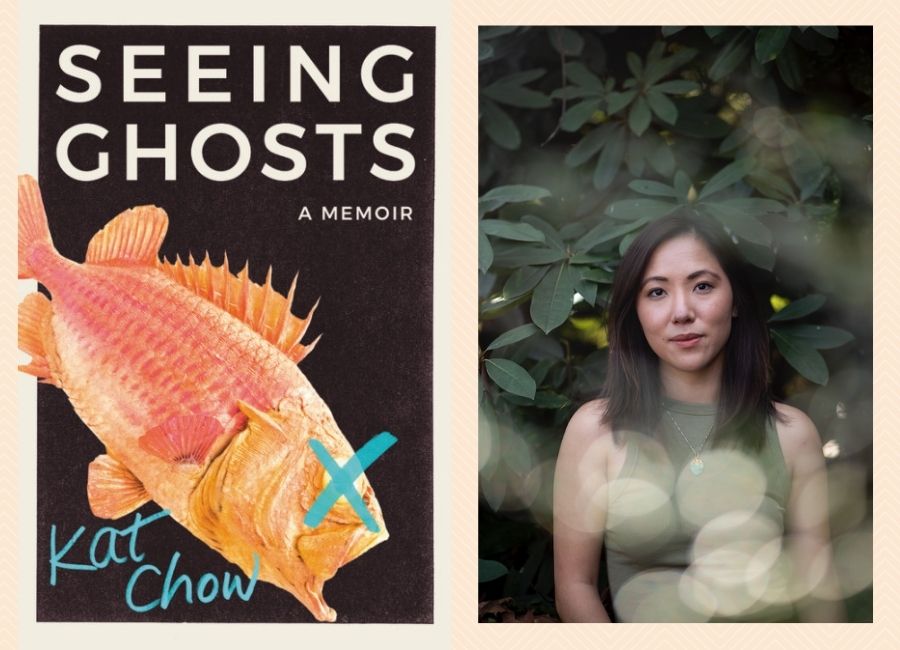With the novelist who long thought she was a Korean American impostor

March 14, 2014
Born in New York seven years after the liberation of Korea from Japanese rule, Eugenia Kim long thought she was a Korean American impostor, unworthy of writing a Korean American novel. After 10 years of research and reading 350 books about Korea or by Koreans and Korean Americans, she changed her mind. “My parents’ stories seemed to carry an urgency meant to instill a Korean identity that was seeping from us with each new American word learned, each Korean word lost,” Kim recounted in a 2009 interview. Wrestling with that identity pervades Kim’s work, which deals frequently with themes of migration, Korean national history, and family strife.
In this week’s studio visit, we hear from Kim about place, time, and the “terrifying” writing process.
What’s on your nightstand right now?
Two years on the nightstand: The Real Story of Ah-Q and Other Tales of China: The Complete Fiction of Lu Xun. More recently, a new translation of Death in Venice by Thomas Mann, and The Bridge of San Luis Rey by Thornton Wilder.
What superpower would you most like to possess?
Time travel. Why isn’t there a superhero who time travels? What would her name be?
What role does place have in your writing?
I can’t imagine a successful story that doesn’t have a vivid sense of place. Even the vacuum of space or the internal geography of the mind is a place.

What songs are on your iPod now?
The Goldberg Variations and French Suites by Glenn Gould. I write with Bach and Beethoven. Otherwise my preferred genre is jazz and jazz vocals. I admit to being woefully ignorant of current music, though I did just purchase some Sybarites 5 chamber music on iTunes. Racy!
What is your writing process?
Distracted. Rewarding. Stressful. Joyful. Plowing. Procrastinated (by this Q&A). Terrifying. Confident. Unsure. Emotional. Self-critical. Fun. Hard work. Did I say terrifying? Terrifying.
What are you working on right now?
A story about a girl born in 1948 Seoul, who is torn from her Korean life at age 16 to immigrate to America, the complications of family secrets, and the question of fate versus faith.
What’s your guilty pleasure?
Staying up all night playing Scrabble with my sisters. But I don’t feel guilty about that, so let me think… Pricey wine. Naps. Jet Li movies.
What did you want to be when you grew up?
An artist whose canvases were painted like renaissance-style frescoes, which depicted contemporary images that hearkened religious themes. Example: a fatal car accident scene with a mother and her perished son in Pieta-like pose, the telephone poles the car crashed into evocative of the crosses on Golgotha.



